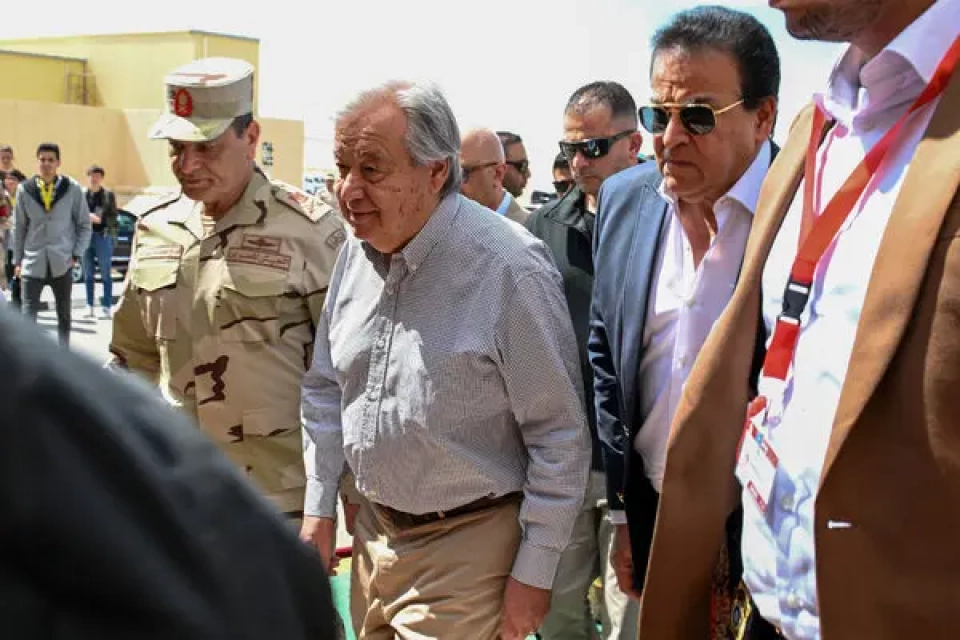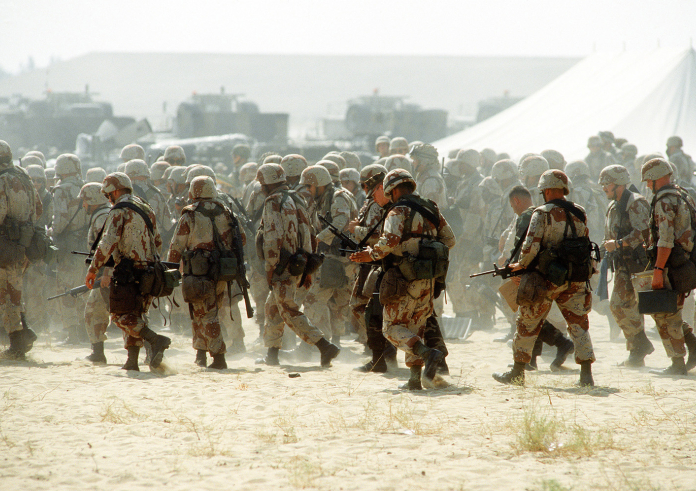UN Secretary-General Antonio Guterres has denounced the obstruction of relief trucks on the Egyptian side of the Gaza Strip border, labeling it a "moral outrage."
During his visit to the Rafah border crossing on Saturday, Guterres emphasized the urgent need for Israel to ensure unhindered access to humanitarian aid across Gaza and called for an immediate humanitarian ceasefire.
"Here at this crossing, we witness the tragedy and callousness of it all. A queue of blocked relief trucks on one side of the gates, the looming threat of starvation on the other," he remarked.
"This goes beyond tragic. It's a moral outrage."
Philippe Lazzarini, head of the UN agency for Palestinian refugees, reported that the Israeli authorities blocked a food convoy for the second time this week.
In a social media post, Lazzarini highlighted that the last aid delivery by UNRWA to northern Gaza, where starvation is rampant, occurred two months ago.
"I've reiterated numerous times: this is a hunger crisis of human origin, a looming famine that can still be prevented," he stressed.
During his visit to the Rafah crossing, Guterres cautioned about the dire consequences of continued aid obstruction, stating, "It's crucial to inundate Gaza with life-saving assistance. The choice is clear: either surge or starve."
This visit aligns with escalating international pressure on Israel to permit humanitarian aid into Gaza, where the risk of famine looms due to widespread shortages of food and water.
The United Nations, in collaboration with Egypt, is striving to facilitate aid flow into Gaza, with Guterres underscoring the urgent need to address the grave situation.
Before his Rafah border stop, where he met UN humanitarian personnel, Guterres arrived in Al Arish in Egypt's northern Sinai, a key hub for international relief destined for Gaza.
Regional governor Mohamed Shusha informed Guterres that approximately 7,000 trucks in North Sinai were awaiting clearance to deliver aid to Gaza, but procedural inspections mandated by Israel were causing delays.
As pressure mounts on Israel to allow humanitarian assistance into Gaza, concerns escalate over a planned large-scale military operation in Rafah, where over half of Gaza's population seeks refuge.
Despite warnings of a military invasion exacerbating civilian casualties and the humanitarian crisis, Israeli Prime Minister Benjamin Netanyahu pledged to proceed with the offensive.
"I aim to do so with the backing of the United States, but if necessary, we will act independently," Netanyahu conveyed to visiting US Secretary of State Antony Blinken on Friday.

















